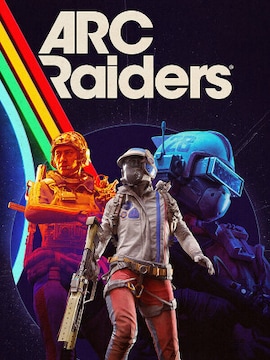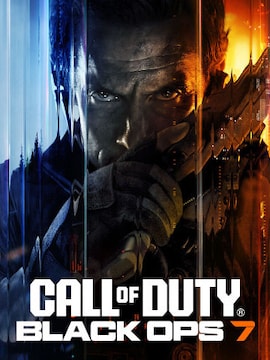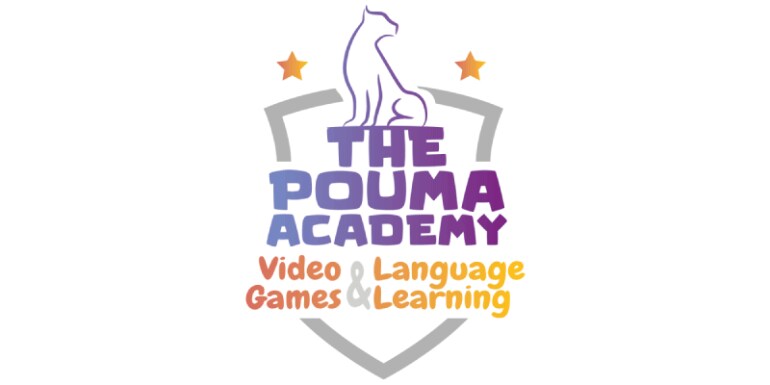Our G2A Academy: Video Games in Education course met the passion of an English teacher from Thessaloniki, Greece, who has already been using video games in her e-classes. She found our course extremely interesting and helpful! We are delighted that we share the same passion. Dimitra’s approach aligns with ours and it is evident that, gradually, more and more people will realize the potential of video games in education.
Dimitra had been using video games for some years already, however she found our course extremely well-structured. She recommends that every educator looking for a new and powerful teaching technique and methodology should try out video games in their teaching sessions. She also believes that students can significantly benefit from gaming in a classroom setting.
We decided to ask her some questions about this topic and what she thinks of our course.
Would you please be able to introduce yourself and your current job?
My name is Dimitra Giannouplaki, and I currently live in my hometown Thessaloniki – a city in the northern part of Greece. In Thessaloniki, I grew up, studied, and received a BA in Religious Studies and another BA in English Language and Literature.
I was fortunate enough to study on scholarship in Canada, Sweden, and the US and visit several countries abroad. My most recent qualification came in 2020 when I completed my MA in Language, Literature, and Digital Media. As part of this course, I majored in video games and the importance of empathy in online teaching.
Having completed this qualification, I set up the Pouma Academy. In this online school, people worldwide can elevate their English to the desired level by attending tailor-made classes that trigger their curiosity and keep them engaged. In our Academy, we embrace students’ pastimes and make them part of our teaching process.
We prioritize the use of cutting-edge teaching methods where video games and apps, along with literature and science, are creatively combined to develop students’ complete personalities and provoke the use of soft skills like empathy, imagination, and collaboration.
How long have you been teaching?
I have been teaching for 15 years.
What age range of students do you teach?
I have taught students between 7 and 70 years of age.
Where do you teach?
I have been teaching both online and onsite. However, in the last five years, all of my classes have been conducted online.
Which subject do you teach?
I teach English and simultaneously aim to develop my students’ soft skills, activate their imagination, and help them explore the world while refining their language skills.
G2A Academy
How did you find G2A Academy, and when did you take the course?
I am always on the hunt to interact with people who share my interests, particularly regarding different teaching methods. As somebody that uses video games as an educational tool, it was exciting to find the G2A Academy course on Udemy, and I watched it immediately. The developers of this course did an excellent job!
How was your experience with G2A Academy?
I felt that the course was well-structured, informative, and engaging. It was an excellent experience. This experience was valuable because I could see similarities between the teaching methods and approaches described in the course and those we follow here at The Pouma Academy.
They conveyed the potential of gaming in the classroom and did a great job outlining the new direction in education.
What were the key/best lessons that you learned from completing the G2A Academy?
My primary takeaway was that gaming could cater to all student interests. G2A Academy views gaming as a learning tool – just as we do – and offers practical recommendations to put their ideas into practice instead of just discussing it theoretically.
Gaming in the classroom
Why do you believe that video games hold value in the classroom?
I believe gaming holds value as it combines theory with practical activity to help students grasp some principles and also practice them while playing. Gaming also prepares students for professional and personal challenges by tapping into different areas to address a problem and reach the desired objective.
By integrating various soft skills, they can overcome any challenges they meet while playing video games and use this experience later in real life. This deployment of skills is similar to how a successful company should operate; employees might all possess different characteristics, roles, and abilities but ultimately work together towards one bigger picture; this makes the team successful.
Online gaming also presents an opportunity for players to interact in forums or over audio chat. It is an excellent practice for exchanging views, formulating opinions, and collaborating to build a strategy. Therefore, teachers must teach the principles of teamwork and give students a first-hand experience of how a genuine team works.
Finally, it is crucial to break out of the mold of written examinations and let students showcase their skills in practical situations. Whether this is physics or English, students can engage with these subjects through activities they find meaningful and is already part of their everyday reality, like gaming.
Which subjects do you believe can most benefit from the use of video games?
All subjects. The role of the teacher is crucial at this point, as they can integrate video games into any learning subject they wish, providing they use the right skills to do so. With a combination of traditional learning resources – books, TV programs, and the like – and videogames, teachers can bring any subject to life in a learning environment.
How do your students react when you introduce video games into your lesson plans? Does it impact their engagement?
Absolutely! They do not expect it, and they interpret it as an expression of empathy towards them. It makes them tick as students. By this, I mean that we dive into their world, turn what they love into a learning experience, and design learning opportunities based on the activities they enjoy in their free time. As a result, our classes are flexible; we develop new teaching ideas with our students’ needs in our minds. This mentality keeps them excited, engaged and the results are noteworthy.
Have you used video games to overcome the challenges posed by lockdown learning over the last 18 months?
In our case – as an online school – nothing much changed during the lockdown. Our students were used to online learning, and they had already been using video games in their learning practices. However, what changed was that people realized that online learning is here to offer feasible solutions. When teachers are familiar with technology and genuinely love teaching, nothing can stop them from enriching their students’ learning experience.
Which games do you find most valuable as teaching resources?
We prefer RPG games that have inspiring, often historical, storylines. For example, we have previously worked on Assassin’s Creed Odyssey, which provides an opportunity for gamers to focus on the relationship between Alexios and Socrates. Again, this is an excellent way for students to learn while having fun and interact with other players.
Do you believe that teaching with video games can reach the mainstream of education?
Yes, I believe this will happen in the coming years. Those teachers and lecturers who care about the result of their teaching and want to offer meaningful experiences to their students will recognize the potential of video games as learning tools.
For example, Dr. James Paul Gee and Dr. Jane McGonigal have been talking, writing, and lecturing about the power of video games in learning environments for many years. They have highlighted the benefits for students and how well they can prepare them for real-life challenges.
What barriers do you believe are stopping people from using games in the classroom?
I would say that it is primarily people’s hesitation to try out new methods. It is pretty easy for teachers to stay trapped in their comfort zone, sticking to the same techniques and lesson plans, but we must stay fresh and think outside the box where possible. Introducing gaming in education is an excellent example of this.
One challenge which has come to light over the last 12 months is that some students do not have a strong internet connection for online learning. We tackled this challenge by using video games that students had already installed on their PC, and the internet connection was not necessary. In addition, the price of the games we select is often low, making it easy for students to play and learn while trying out multiple games depending on their learning profile and needs.
Finally, there is a widespread belief that video games are only about shooting and using violence, plus that they burn our brain cells. However, the reality is very different. If we deploy the suitable video games in the right way, we can turn them into a robust simulation environment or allow their script to travel us to their world and help us learn incidentally.
Do you think that more teachers could benefit from training materials such as G2A Academy?
It goes without saying! I am sure about that, and I am looking forward to the next step of the G2A Academy journey. We develop as humans by leaving our comfort zones and trying out new things. With G2A Academy and similar learning resources – educators can ace their skills and fully transform their classes and the flavor of the learning experiences they design.

Contact details:
Ms. Dimitra Giannouplaki
ask@thepoumaacademy.com / thepoumaacademy.com
FB: https://www.facebook.com/thepoumaacademy
Instagram: https://www.instagram.com/the_pouma_academy/
LinkedIn: https://www.linkedin.com/in/dimitra-giannouplaki-3417878/
Twitter: https://twitter.com/thepoumaacademy





